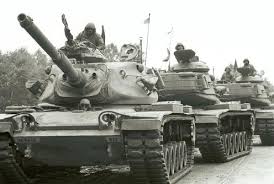President Bush Doctrine in the Middle East and Iran
Keywords:
President Bush Doctrine, New World Order, Middle East, Iran, Persian GulfAbstract
George Herbert Walker Bush was confronted with major changes in the world in his president time. The Cold War ended after 40 years, the Communist empire collapsed and the Berlin Wall collapsed, too. The Soviet Union lost and Mikhail Gorbachev who was reformist leader and always supported by Bush had resigned. While Bush has defended the democratization, he emphasized on foreign policy cautiously toward new countries. The biggest test of George Herbert Walker Bush was the invasion of Saddam Hussein who was president of Iraq to Kuwait and threatened to invade on Saudi Arabia. Bush's commitment to support the liberation of Kuwait could gain the support of UN, American and Congress and set out 425 thousand American soldiers to Kuwait. 117 thousand American troops joined the allied forces. After bombing for weeks and a hundred-hour ground war, Iraq was defeated by the army of a million people. Iran condemned the invasion of Iraq at the time but in the UN's activities announced neutrality in relation to declare. Disarm Iraq and to establish safe areas in North and South were gains America’ about Iraq. President Bush refused the Americans to Iraq in order to maintain the regional balance toward Iran. He also ordered Iraq used his planes against the north movement by the Kurds and southern movement in Iraq by Shiites. This action caused great destruction and had many international reactions. After it ,safe zones formed in northern and southern and Iraq was banned from entering the military to the region. Designed New World Order was just after the defeat of Iraq, the Soviet Union and the Cold War. Its principles were announced b President Bush as follows: first revision of the structure of the international economic system, but only the process of this suggestion was the Uruguay Round of GATT into the WTO in 1955. These changes were more in favor of industrialized countries. Second, strengthening the UN, third preventing proliferation of weapons of mass destruction, fourth campaign against international terrorism. Finally, the issue of human rights and fundamental freedoms of the components of the new world order was proposed by President Bush.
References
Ehteshami, A.(1999). "Iran's foreign policy during construction." Translation: Ibrahim Motaghi and Zohreh Poostinchi, Tehran: Islamic Revolution Documents Center
Ebrahimi, Sh. (2007), "America and the Persian Gulf Security System: Feasibility Anarchy Evolution of Cooperation and Peace," Political and economic information.
Ehteshami, A.(2004). "The transition from a succession crisis." Translation: Zohreh Poostinchi and Motaghgi. Ghomes publication.
Amirahmadi, H. (1994). "Iran and the Persian Gulf, insights and strategic issues." Translation: J. Zangene, Proceedings of the Fourth Seminar Persian Gulf, Tehran: Bureau of State for Political Studies.
Aminian, B. (2002). "Seeks to shed new world order," Foreign Policy Journal, Fall 63.
Payvar, M. (2004). "Reagan and Bush and activities to gain political legitimacy", Regional Studies: Israel's recognition of America, Year 5, No. 2.
Ramazani, R. (2001), "Analytical Framework for the Study of Foreign Policy of the Islamic Republic of Iran", translated by Ali Tayeib, Tehran: Ney publication.
Rozena, J. (2001), "Security in a world in chaos, embodied in critical evaluations in the field of international security", translated by Ali Taieb, Tehran: Ney publication.
Simbar, R. and Ghorbani,A. (2008), "International Relations and Peace Diplomacy in the changing global environment", Tehran: publisher side, second edition.
Kissinger, H. (2002). "America's diplomacy in the twenty-first century", translated by A. Meadow Way, Tehran, Institute of Contemporary International Studies Abrar.
Gergis, F. America and Political Islam; confrontation cultures or conflict of interest, perfection Savarian, Tehran: Institute for Strategic Studies, 2003.
Haas, Richard (2009). "Obama, a mix of Bush father and son", translation: Lida H, News-One. Available at URL: http://khabaronline.ir
English references
-Paul D., Wolfowitz(1994),clinton first year,foreign affairs.
-Richard .k.herrman and William ayres(2011),”the new geopolotics of the Persian Gulf “, forces for change and stability in the Persian gulf at the millennium.
-Hill ,Christopher (2003),”The Changing Politics of Foreign Policy”, MacMillan, Palgrave.
-WHITE HOUSE “national security strategyof the united states 1991” at: http://powerhour.com/news2_nss_us.htm

Published
How to Cite
Issue
Section
Copyright (c) 2020 Abolfazl Eisaabadi Bozchalluei

This work is licensed under a Creative Commons Attribution-NonCommercial-NoDerivatives 4.0 International License.



